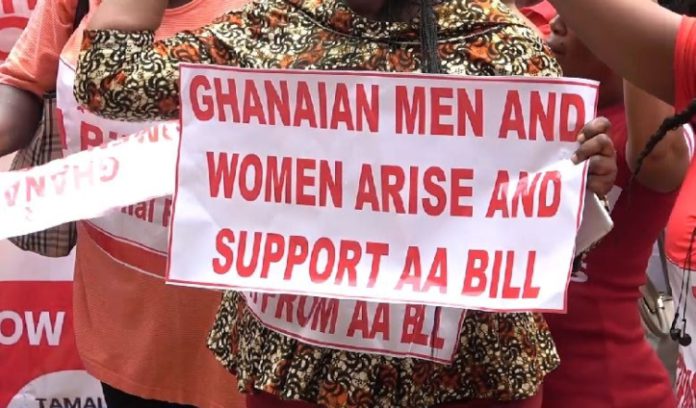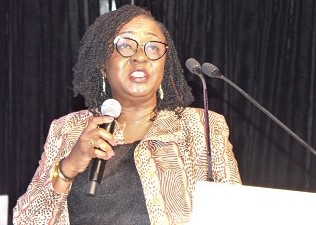
Ghana's initial endeavour in the 1960s to establish a legislative framework aimed at enhancing women's involvement in leadership and decision-making roles has not resulted in substantial progress.
Ghana's affirmative action bill if passed into law, will ensure that a critical number of women are in key positions in governance, public life, and decision-making spaces that will improve the lives of women in the country.
Female aspirants for the local government elections and civil society organizations are pushing for the Affirmative Action Bill to be passed into law.
This article, therefore, provides us insight into the basis for the passage of the Bill and the need for its passage.
Ghana's Affirmative Action Bill defines Affirmative Action as A set of measures adopted by the government, public and private institutions to address a history of systemic discrimination and exclusion of women and to encourage their efforts towards addressing political, social, cultural, economic and educational gender imbalance in the public and private sectors in accordance with clause (4) of Article 17 of the Constitution.
The Bill seeks to promote a progressive increase in the active participation of women in public life from a minimum of 40% to a parity of 50% by 2030 in line with the Sustainable Development Goals (SDGs).
Through various efforts that have been made in Ghana to balance political representation and participation between women and men, these efforts have not yielded the desired results, mainly due to the low commitment and the political will to back such initiatives.
The Affirmative Action Bill when passed into law, would bring a big relief to women and girls in the country especially when it came to issues on governance and leadership roles, and also help achieve gender parity.
Ghana began its quest for an Affirmative Action Law as far back as 1998 when guidelines on the Law were passed by the Cabinet.
However, as of March 2024, the Bill has still not been passed.
This is due to the low commitment on the part of stakeholders towards pushing for the passage of the Bill into Law.
This low commitment has been realised because the purpose, relevance, and benefits that we stand to gain as a country have not been clearly spelled out and disseminated to all citizens.

Meanwhile, with the announcement of Professor Naana Jane Opoku-Agyemang as the running mate to John Mahama of the National Democratic Congress (NDC), the passing of the bill is being discussed on various media platforms.
Low representation of women in Parliament and companies owned
In Ghana now, Parliament has a membership of 275 members, but only 40 are women. This represents about 14.5 percent. This is not good enough.
Out of the 35 companies listed on the Ghana Stock Exchange, 38 percent of these companies have one female or no female at all.
The challenges facing women and girls' empowerment in Ghana in the 21st century were numerous and complex.
There is a need to acknowledge there are gender disparities in education forced early marriages, teenage pregnancies, and limited access to financial resources as some challenges confronting women and girls.
CDD speaks on Affirmative Action Bill
Vera Abena Addo, the Programs Officer at the Center for Democratic Development (CDD) Ghana, has stressed the vital importance of the Affirmative Action Bill in tackling the historical marginalization of women in decision-making positions.
In an interview on JoyNews, monitored by Pulse Ghana, Madam Addo emphasized that women, comprising over half of Ghana's population, have endured prolonged exclusion from crucial decision-making procedures.
She pointed out that this exclusion not only impedes progress but also diminishes the fundamental values of democracy and inclusivity.
The Affirmative Action Bill recognizes the marginalization of women, and for a very long time, women who make up more than half of the population have not been part of decision-making. This undermines our development, democracy, and issues about inclusion participation among others, she stated.
Read Full Story























Facebook
Twitter
Pinterest
Instagram
Google+
YouTube
LinkedIn
RSS